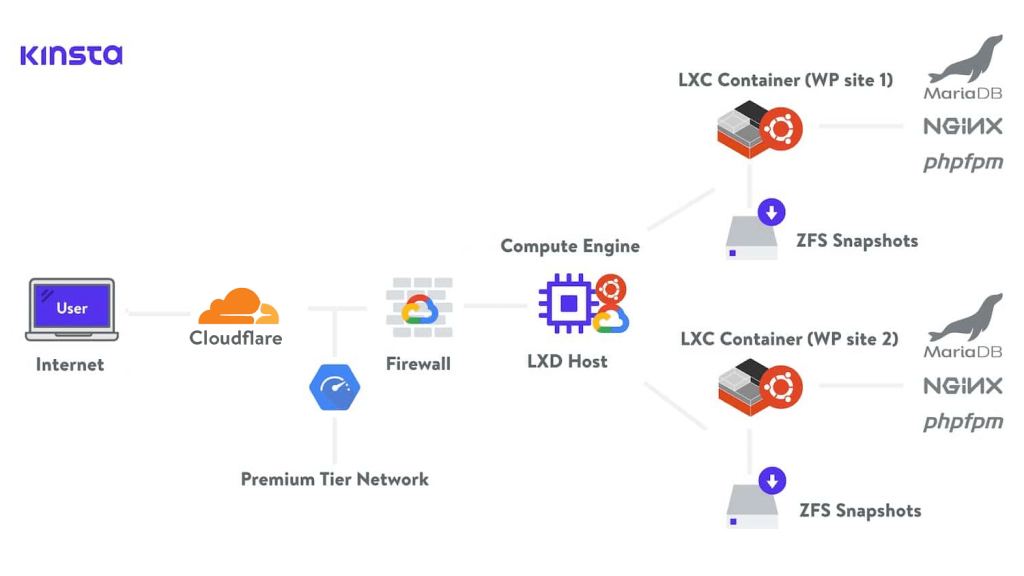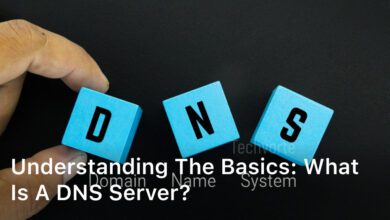In today’s digital age, having a robust web hosting security strategy is paramount for individuals and businesses alike.
With cyber threats becoming increasingly sophisticated, ensuring the safety and integrity of your online assets is non-negotiable.
Whether you’re running a personal blog or managing a large e-commerce platform, implementing the right security measures can safeguard your website from potential attacks, data breaches and other malicious activities.
Here are six of the best web hosting security practices to fortify your online presence:
Data Encryption
Data encryption is a critical web hosting security measure that protects your website from unauthorized access by encoding sensitive data.
Encryption requires a secret key to decode the data, ensuring that only authorized individuals can access it.
This is particularly important for websites that handle sensitive data such as credit card information and personal data.
By encrypting this data, you can prevent it from falling into the wrong hands and ensure that your website is secure.
Therefore, it is essential to implement data encryption as a standard security measure on your website.
SSL/TLS Encryption
Secure Socket Layer (SSL) or Transport Layer Security (TLS) encryption is essential for establishing a secure connection between your website and its visitors’ browsers.
By encrypting data transmitted between the server and the user’s device, SSL/TLS certificates prevent eavesdropping and data interception by hackers.
Look for web hosting providers that offer free or affordable SSL/TLS certificates and ensure they are properly configured for your website.
DDoS Protection
DDoS attacks are one of the most common types of cyber attacks that can target your website.
These attacks flood your web server with traffic, rendering your website inaccessible to legitimate users.
DDoS protection can help safeguard your website from these malicious attacks by identifying and filtering out illegitimate traffic.
Web hosting providers often offer DDoS protection as part of their server security measures.
However, it’s important to ensure that your web hosting provider has robust DDoS protection in place, as the effectiveness of these measures can vary widely.
Some effective DDoS protection measures include:
- Limiting the amount of incoming traffic to your website
- Identifying and blocking illegitimate traffic based on its geographical origin or network traffic patterns
- Deploying specialized hardware appliances or software to analyze incoming traffic and filter out illegitimate requests
By implementing effective DDoS protection measures, you can ensure that your website remains available to legitimate users even in the face of malicious cyber attacks.
Regular Software Updates
Keeping your website’s software, including the Content Management System (CMS), plugins and themes, up to date is crucial for addressing security vulnerabilities and patching known exploits.
Many cyber attacks target outdated software with known security flaws, making regular updates a critical aspect of your security strategy.
Opt for a web hosting provider that offers automatic updates or provides tools to streamline the update process for your website.
Strong Password Policies
Weak passwords are a common entry point for hackers attempting to gain unauthorized access to your website’s backend or administrative panels.
Implement strong password policies that require users to create complex passwords containing a mix of letters, numbers, and special characters.
Additionally, consider using multi-factor authentication (MFA) to add an extra layer of security by requiring users to verify their identity through additional means such as SMS codes or authentication apps.
Vulnerability Scanning and Malware Detection

Regular vulnerability scanning and malware detection are essential components of web hosting security.
These proactive measures can help identify and mitigate potential threats, keeping your website safe from cyberattacks.
Vulnerability scanning involves analyzing your website to detect any weaknesses that may be exploited by attackers.
This process helps you stay informed about the security gaps that exist on your website and enables you to take the necessary steps to patch them.
Malware detection is the process of scanning your website for any malicious code or software that may have been injected by attackers.
This step is crucial in preventing malware infections that can compromise your website’s security and put your sensitive data at risk.
Regular vulnerability scanning and malware detection are critical for maintaining the security of your website and protecting it from potential threats.
Firewall Protection
Firewall protection is essential for maintaining web hosting security and preventing unauthorized access.
A firewall acts as a barrier between your network and external networks, filtering out potentially harmful traffic and blocking known threats.
It can help safeguard your website from network-based attacks, such as phishing and malware distribution.
Furthermore, a firewall can prevent attackers from exploiting vulnerabilities in your server software or operating system.
By regulating traffic in and out of your server, it can detect and prevent unauthorized access attempts.
There are two types of firewalls, software firewalls and hardware firewalls.
Software firewalls are installed on a server and can block or allow traffic based on defined rules.
Hardware firewalls are installed between the server and the internet and can block traffic before it even reaches your server.
Overall, implementing firewall protection is a crucial step in securing your web hosting and server, and can provide an additional layer of defense against potential threats.
FAQ
How do I know if my web hosting provider prioritizes security?
Look for web hosting providers that offer comprehensive security features such as SSL/TLS encryption, firewall protection, regular software updates, and DDoS mitigation. Additionally, read reviews and testimonials from other users to gauge their experience with the provider’s security measures.
Do I need to purchase a separate SSL/TLS certificate for my website?
Many web hosting providers offer free SSL/TLS certificates through services like Let’s Encrypt or provide affordable options for purchasing premium certificates. Check with your hosting provider to see if SSL/TLS certificates are included in your hosting plan or if they are available as add-on features.
How often should I back up my website’s data?
The frequency of backups depends on the nature of your website and how frequently its content is updated. As a general rule, it’s recommended to back up your website’s data at least once a day or whenever significant changes are made. Choose a web hosting provider that offers flexible backup options and allows you to customize backup schedules according to your needs.
Can I implement additional security measures on top of my web hosting provider’s offerings?
Yes, you can enhance your website’s security by implementing additional measures such as security plugins, malware scanners, and vulnerability assessments. However, ensure that these measures are compatible with your web hosting environment and do not conflict with existing security configurations.
What should I do if my website experiences a security breach?
In the event of a security breach, act swiftly to mitigate the damage by identifying and addressing the source of the breach, restoring backups to regain lost data, and implementing additional security measures to prevent future incidents. Notify your web hosting provider and relevant authorities, such as cybersecurity agencies or law enforcement, if necessary.





